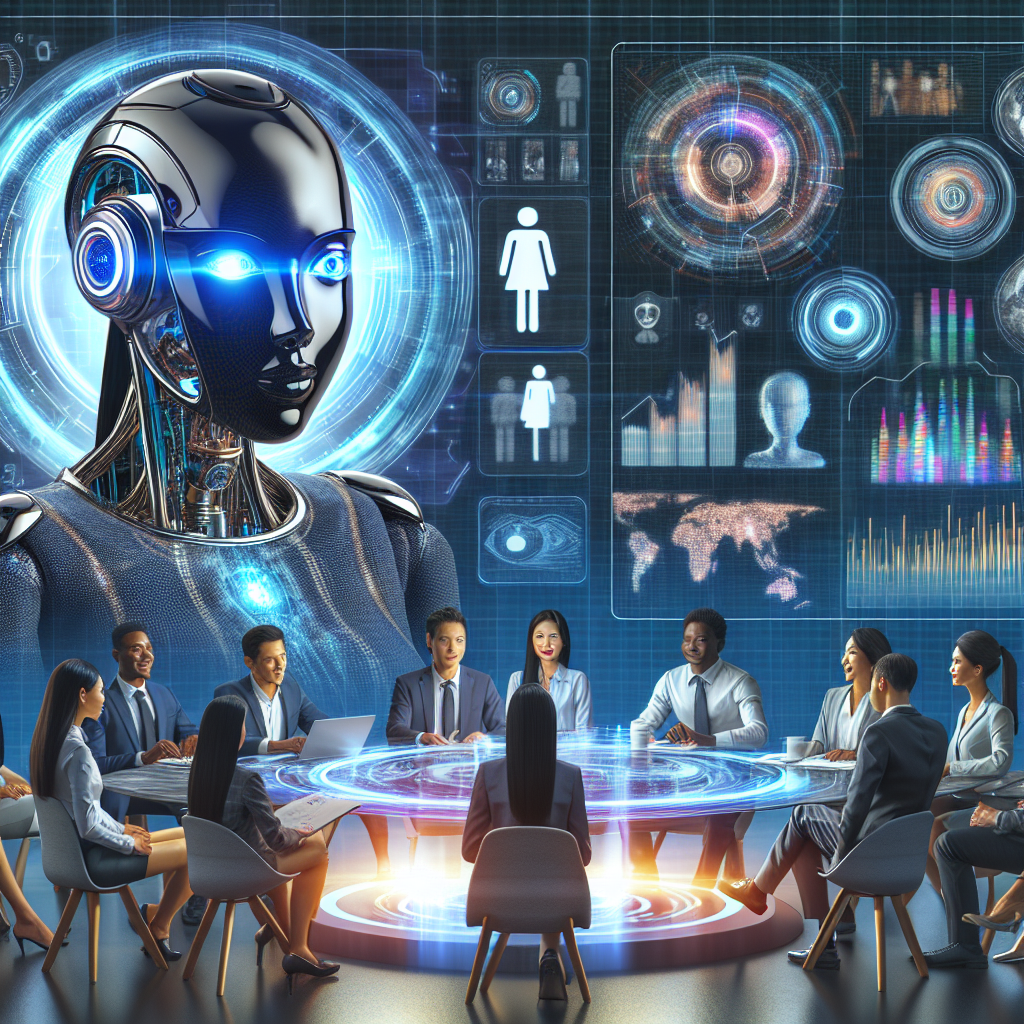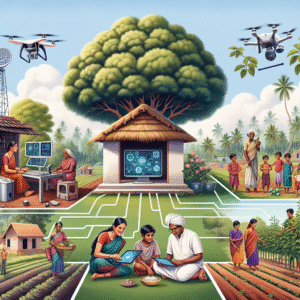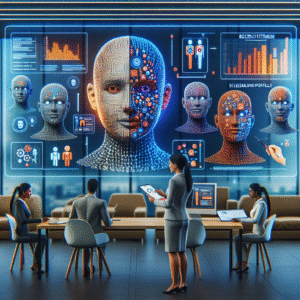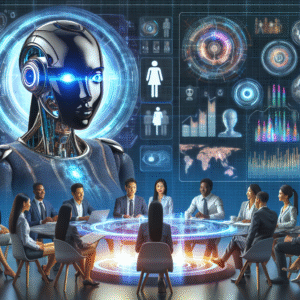Future Recruitment on Artificial Intelligence
Estimated Reading Time: 7 minutes
- AI is fundamentally changing recruitment processes.
- Automation allows HR professionals to focus on strategic initiatives.
- AI enhances candidate experience while promoting diversity.
- Collaboration between AI and human recruiters is essential for success.
- Organizations must remain vigilant about potential biases in AI systems.
Table of Contents
- Understanding the Role of AI in Recruitment
- Key Trends in Future AI-Driven Recruitment
- Emerging AI Applications in Recruitment
- Limitations and Challenges of AI in Recruitment
- Practical Takeaways for HR Professionals
- Conclusion: Partnering with AI for Future Recruitment Success
- FAQ
Understanding the Role of AI in Recruitment
AI is fundamentally changing how we approach recruitment. It streamlines processes, enhances decision-making, and supports a more engaged candidate experience. While some fear that AI may eventually replace human recruiters, it’s essential to understand that AI is designed to augment their capabilities. It will not supplant the need for human intuition and empathy but instead allow recruiters to become more strategic and focused.
Key Trends in Future AI-Driven Recruitment
- Predictive Analytics & Fit Scoring
Predictive analytics is at the forefront of AI in recruitment. Sophisticated machine learning tools can analyze past successful hires to predict which candidates are most likely to thrive within an organization. According to IBM, these tools can forecast retention rates and improve the quality of hires by assessing candidate-role fit effectively. This not only enhances recruitment outcomes but also fosters long-term employee success. - Automation of Repetitive Tasks
AI excels at automating repetitive tasks such as resume screening, candidate communications, and interview scheduling. As noted by Oleeo, AI-powered scheduling can save recruiters up to 36% of their time. This automation allows HR professionals to dedicate more time to strategic initiatives, such as building relationships with candidates and developing long-term talent strategies. - Sourcing and Screening Candidates
AI can analyze vast databases, social media platforms, and professional networks to identify potential candidates who fit certain criteria. Tools that leverage machine learning for resume screening quickly filter out unqualified applicants based on keywords and relevant skills, thus increasing the efficiency of the recruitment process (IBM). - Promoting Diversity and Inclusion
AI tools play a critical role in promoting diversity and inclusion (D&I) within recruitment. By automating the anonymization of applications and analyzing job descriptions for bias, AI helps reduce unconscious bias. Platforms are now capable of rephrasing job postings to make them more appealing to a diverse candidate pool, as mentioned by Greenhouse. - Enhancing Personalization and Candidate Experience
AI-driven chatbots and other communication tools significantly enhance the candidate experience. These systems provide real-time updates and answer queries, guiding candidates throughout the hiring process (IBM). Utilizing generative AI also allows recruiters to deliver customized outreach messaging, fostering a stronger connection with candidates from the outset. - Advanced Analytics and Strategic Planning
AI’s power extends beyond immediate interactions; it also analyzes engagement metrics and historical hiring data to forecast future staffing needs. This real-time analysis empowers organizations to proactively plan their recruitment strategies, ensuring they are prepared for future talent requirements (IBM). - Skill Assessment and Categorization
The use of AI in skill assessment is transforming how organizations evaluate candidates. AI-powered tests and simulations can objectively assess skills, thereby reducing subjective bias in the hiring process. As strategies evolve, organizations can focus on skills-based hiring, which is essential for diverse experiences within the workforce (IBM). - Human-AI Collaboration
A critical aspect of the future of recruitment is the collaboration between human recruiters and AI systems. AI enhances data-driven decision-making, while human intuition remains crucial for assessing cultural fit and exercising empathy during the hiring process. Thus, AI acts as a powerful tool for HR professionals rather than a replacement (Vonage).
Emerging AI Applications in Recruitment
As technology advances, we can anticipate even more innovative applications of AI in recruitment:
- Video Interview Evaluations: AI tools may increasingly evaluate video interviews, assessing verbal and nonverbal cues to provide a holistic view of candidate qualifications (Vonage).
- Smart Candidate Pipelines: These systems will proactively build and diversify talent pools, ready to meet organizational needs (Vonage).
- Integrated Virtual Agents for Onboarding: With fully personalized application assistance and onboarding processes, AI could streamline the candidate experience from the first point of contact through to employment.
- Auto-Generated Interview Questions: Using large language models (LLMs), recruiters could receive tailored interview questions and assessments customized for each role, ensuring alignment with company culture (Greenhouse).
Limitations and Challenges of AI in Recruitment
Despite the remarkable potential of AI, challenges and limitations remain:
- Bias in Historical Data: AI can perpetuate existing biases if not managed appropriately, especially when trained on historical data with inherent biases (Greenhouse).
- Nuanced Decision-Making: Certain recruitment aspects still require human sensitivity and emotional intelligence, which AI lacks.
- Strategic Involvement: Complete automation of the hiring process is unlikely, as there will always be a need for human recruiters to handle complex, relationship-focused aspects of recruitment (Vonage).
Practical Takeaways for HR Professionals
As the recruitment landscape continues to evolve, HR professionals and business leaders can implement the following strategies to leverage AI effectively:
- Invest in AI Tools: Seek out AI systems that automate mundane tasks, allowing your team to focus on strategic initiatives that require a human touch.
- Prioritize Diversity and Inclusion: Use AI’s capability to analyze and adjust job postings to remove bias and ensure diverse candidates feel represented.
- Embrace Data-Driven Decision Making: Use predictive analytics to assess candidate fit and forecast future hiring needs based on historical trends.
- Maintain the Human Element: While relying on AI for efficiencies, ensure that the emotional components of recruitment—like cultural fit and candidate empathy—are preserved and prioritized.
Conclusion: Partnering with AI for Future Recruitment Success
The future of recruitment is bright, with AI emerging as a powerful partner in enhancing hiring processes, improving candidate experiences, and promoting diversity. By employing AI strategically, recruiters can focus on building stronger relationships with candidates and tailoring their hiring strategies for optimal results. As the industry evolves, organizations that harness the capabilities of AI while retaining the essential human element will undoubtedly gain a competitive edge in securing top talent.
Are you ready to embrace the future of recruitment? Explore our AI consulting services or contact us for more information on how we can help your organization implement AI-driven recruitment solutions tailored to your needs. Together, let’s navigate the future of recruitment with innovation and strategic insight.
FAQ
- How can AI reduce bias in recruitment?
AI can analyze job descriptions for bias and help automate the anonymization of applications to reduce unconscious bias in the hiring process. - Will AI replace human recruiters?
No, while AI automates many tasks, the need for human intuition, empathy, and relationship building in recruitment remains essential. - What are some examples of AI tools in recruitment?
Examples include predictive analytics for fit scoring, AI-driven chatbots for candidate communication, and machine learning systems for resume screening.



